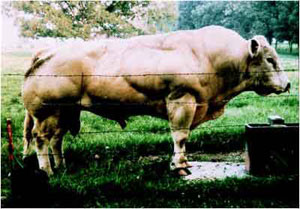 Living in the bay area with two school-aged sons, you'd think the news that Barry Bonds broke the all-time home run record would have been a big deal in our house. It wasn't. My kids focused on the steroids instead of home run number 755.
Living in the bay area with two school-aged sons, you'd think the news that Barry Bonds broke the all-time home run record would have been a big deal in our house. It wasn't. My kids focused on the steroids instead of home run number 755.
This got me to thinking about fair and unfair advantages in sports. Very few people would argue that Barry Bonds was playing fair if he really took steroids so he could hit the ball farther. Or that bike riders in the Tour de France were playing fair by blood doping. But what if someone has bigger muscles or is blood doped naturally? What would be fair or unfair then?
The reason I got to thinking about this was that there actually was a case in sports of natural blood doping. The idea behind blood doping is that you can increase your endurance by increasing your number of red blood cells. One way to do this is to get a blood transfusion. Another way is by taking the hormone EPO.
EPO is a natural hormone that tells blood stem cells to make more red blood cells. EPO does this through a protein called the EPO receptor. And like any protein, the instructions for making the EPO receptor are found in a gene.
Back in the 1964 Winter Olympics, there was a Finnish cross-country skier named Eero Mantyranta. Eero won two gold medals so easily that people thought he must be cheating. But he wasn't.

